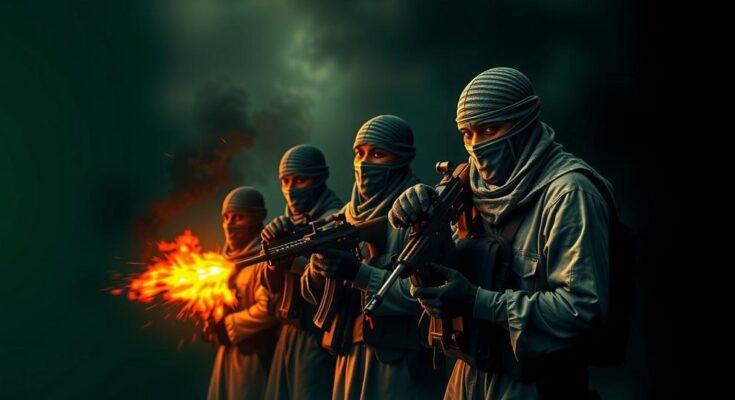Analysts contend that the emergence of the Lakurawa terrorist group in Nigeria is deeply rooted in governmental failures and ongoing insecurity. Initially formed to combat banditry, Lakurawa has evolved into a radical insurgency. The Nigerian Army’s classification of Lakurawa as a new threat obscures its historical context and the state’s accountability for unchecked violence. The situation calls for enhanced local governance and strategic defense reforms.
Analysts reveal that the emergence of the terrorist group known as Lakurawa in Nigeria is a consequence of longstanding government failures and insecurity within the region. While the Nigerian army recently claimed Lakurawa to be a new threat linked to upheavals in the Sahel, historical accounts indicate that this group has operated since 1999, evolving from armed herders into a formidable insurgency due to the state’s inability to provide security. The conditions of poverty and ungoverned spaces have exacerbated the rise of such groups, who exploit the void left by weak governance.
Research by Murtala Ahmed Rufa’i, a peace and conflict studies scholar, delineates how Lakurawa was initially formed to combat banditry but later transitioned to their own campaign against local communities. The group’s foundation involved local traditional leaders, who sought assistance against Zamfara’s bandits, thus creating an entity that would eventually challenge their own authority as it imposed a radical interpretation of Islam and engaged in violent acts. Despite being operational since the late 1990s, the notion of Lakurawa as a newly emergent terror group reflects an evasion by authorities regarding their accountability for escalating insecurity.
The insecure landscape is further compounded by porous borders and a lack of military presence, allowing groups like Lakurawa to establish quasi-governance structures in affected areas, becoming a self-imposed authority with detrimental consequences for local communities. The recent attempts by Nigerian security forces to combat this group underscore an urgent need for a reevaluation of security strategies, enhancing local policing, and fostering intergovernmental collaboration with neighboring nations to effectively address the roots of terrorism and insecurity in the region.
Nigeria’s northern regions have long struggled with insecurity, stemming from a combination of poverty, banditry, and ineffective government responses. The emergence of armed groups like Lakurawa can be traced back to broader socio-political crises affecting the Sahel, where military coups have destabilized governments and increased lawlessness. As these groups exploit weak governance structures, they contribute to a cycle of violence that not only affects Nigeria but also threatens regional stability through cross-border alliances with similar factions operating in neighboring nations.
In summary, the case of Lakurawa illustrates the complex interplay between governmental failures, socio-economic despair, and the rise of radical groups in Nigeria. Instead of recognizing their long-standing operational history, authorities frame Lakurawa’s emergence as a new issue, distracting from the systemic shortcomings of security policies that have allowed such groups to flourish. A comprehensive response must involve enhancing local security measures while promoting effective inter-agency and international collaboration to counter the escalating threat of terrorism.
Original Source: www.defenceweb.co.za




